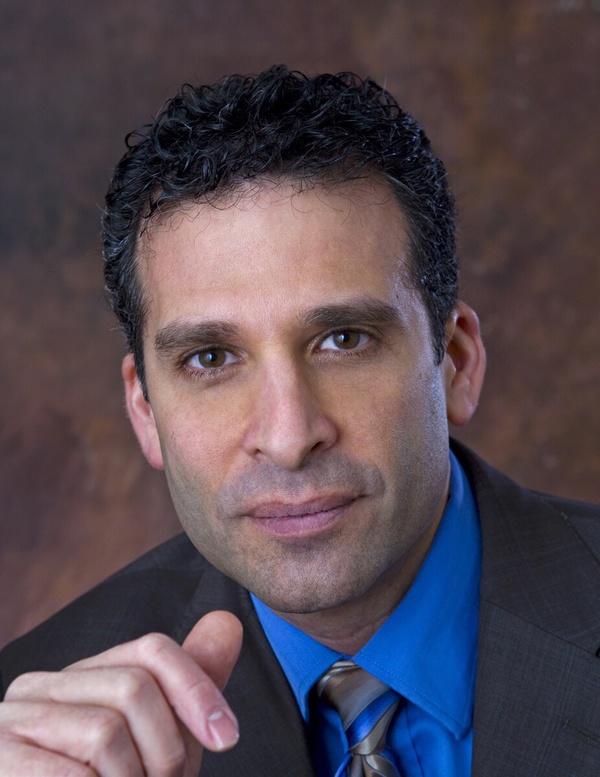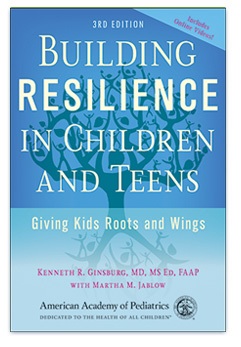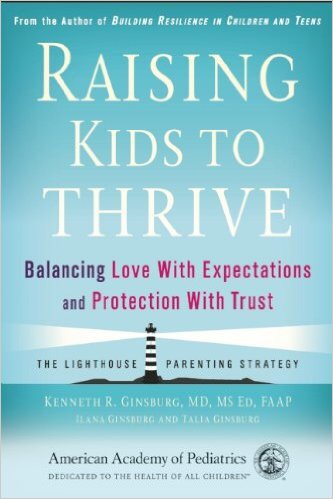
åŪūåĪ§ææ Dr. Kenneth Ginsburg åĻPCE Club 2015åđīåđīäžįäļŧéĒčŪē嚧čŪ°å―
čąæčŪ°å―æīįïžéŧæ
äļæįŋŧčŊïžTaili Zhuangïžåž æŊåąą
įķæŊååĨģäŋąäđéĻįŽŽåäšåąååĨģæčēį čŪĻæĻåđīäž
įæĢįæåïžåđčēč―åĻå
æŧĄææįäļįéåĨåš·åäļįåĐå
įđéæžčŪēååŪū: åŪūåĪ§åŧåĶéĒåŋį§ææãčåä―åŪķDr. Kenneth Ginsburg
æĪæŽĄčŪē嚧å°čŪĻčŪšåĶä―æŋåååđå
ŧåĐååŊđåĶäđ įįįąčäļæŊåŊđåĪąčīĨįæ§æïžäŧĨäŋčŋäŧäŧŽååūåčķįæå°ąãæ°ļčŋäļčĶåŋčŪ°ïžæäŧŽå
ŧčēåĐåįįŪæ æŊčŪĐåĐåæéŋäļšåŋŦäđčåŊđįĪūäžæčīĄįŪįäššãčŋæåģįåĶäļæįŧĐå°―įŪĄéčĶïžåŪäđåŠæŊ襥éæåįæ åäđäļãåĐåéčĶå
·ææ
ååįĪūäšĪč―åïžæåŊč―åĻåŪķåšåå·Ĩä―äļčŽåååąãäŧäŧŽéčĶäŋæåååąäŧäŧŽįåé æ§ååæ°æ―č―ïžäŧĨåå
åĻįé§æ§ãåĐåčĒŦæĻåūåĪŠååŪģïžå°ąæ æģåį°čŠå·ąįåĪĐčĩïžåđķčķäšåŪįūäļŧäđãåŪįūäļŧäđč
æ æģæĨįšģčŠå·ąïžäšŦåäļå°éŦæå°ąåļĶæĨįåŋŦäđïžäšåŪäļčŋįŠæŊäšäŧäŧŽčŠå·ąįåé æ§ãGinsburgææå°čŪĻčŪšåĪ§åĶå―åčŋįĻïžéįđåžšč°åžåŊžåĐåæūå°éåčŠå·ąįæčēäļåĶæ ĄãčŪē嚧įäļŧéĒæŊåđå
ŧč―äļšäļįååšįŽįđäļå·ĻåĪ§čīĄįŪįæååĐåã
Dr. Kenneth GinsburgįŪäŧ:åŪūåĪ§åŧåĶéĒåŋį§ææKenneth Ginsburgïžäļéŋäšéå°åđīčĄäļšååŋįåĨåš·ïž Boys & Girls Clubs of America įé§æ§äļåŪķïžæūč·åĪäļŠåĨéĄđåđķåšįåĪéĻäļčïžčŋæéčŋįūå―åŋį§åĶäžåšįäšãBuilding Resilience in Children and Teens: Giving Kids Roots and WingsãåãRaising Kids to Thrive: Balancing Love With Expectations and Protection With TrustããäŧįäļīčŊåŪč·ĩãæåĶãį§į ãäŧĨåįĪūäžæīŧåĻé―åīįŧįäļäļŠįŧäļįäļŧéĒïžéčŋæéŦéå°åđīįå
åĻé§æ§æĨæé äŧäŧŽįåžšéĄđãäŧčīåäšå°į įĐķåäļīčŊäļæč·įĨįäļčĨŋå°―åŊč―č―ŽåäļšæĨåļļåŪč·ĩäļįæđæģïžäŧĨäūŋčŪĐįķæŊ, äļäļäššåĢŦãåįĪūåšæĨåđå
ŧåĐåįé§æ§ã
2015åđī10æ3æĨįįķæŊååĨģäŋąäđéĻ(PCE Club)åđīäžæŊäŋąäđéĻčŋåđīæĨææåįåđīäžäđäļïžæäŧŽæķå°äšéåļļįįįæĢéĒåéĶãDr. GinsburgäŧĨäŧäļäļįæīåŊåãåŊđåĐåįæ·ąååæ
ãåäļåŪķéŋäŧŽå
ąåå
ģåŋčŊéĒįå
åŪđãäŧĨååđ―éŧįåĻįčŊčĻïžæäļšPCEææåįäļäļŠčŪē嚧č
ãæäŧŽåŊđDr. GinsburgįčŪē嚧æå°éåļļåéžčïžå äļšäŧįč§įđæĢæŊPCEåäšåđīæĨäļįīæĻåđŋįæčēįåŋĩïžäŧäŧĨæīäū§éį įĐķįåĶč
éĢæ žéčŋ°ãčŪščŊãæåäšPCEįæčēåēåĶã
äļéĒæŊDr. GinsburgåĻPCE 2015åđīäžčŪē嚧čŪ°å―æčĶã
***********************************
čŋæŽĄčŪēåäžįäļŧéĒæŊïžåđčēč―åĻå
æŧĄææįäļįéåĨåš·åäļįåĐå
æäŧŽå
éŪéŪčŠå·ąåĶä―åŧåŪäđæåã
æäŧŽåļļåļļäžįŊäļäļŠéčŊŊïžæäŧŽįįįžåįåĐåæģïžäŧæåĪäđæåïžčŋæ ·åįåŪķéŋåūåūäžčŋåå
ģæģĻäļĪäŧķäšïžåŋŦäđæč
æįŧĐãåĶæåŠå
ģæģĻåĐåįįžäļįåŋŦäđčåŊđåĐåæēĄčĶæąïžéĢäđčŋæ ·įåŋŦäđäđæŊįæįãįĻįšĩåģéãåĶæåŠå
ģåŋåĐåįæįŧĐïžå°ąåŠįå°åĐåįæå°ąïžčäļæŊåĐåčŋäļŠäššæŽčšŦã
æäŧŽåščŊĨå
äļįįžåįåĐåïžčæŊæģååĐåæéŋäļš35åēįæ ·åïžåĶæåŪķéŋåžå§čč35åēæåđīäššįæåéå
·ä―åĪåŠäšįī čīĻïžååĨģæčēäžč―ŧæūåūåĪïžčåŪķéŋäđäžæīæį―åĶä―éæĐäļåįæčēæđåžã
æäŧŽåščŊĨäļšåĐåå°æĨįååąåæååååĪïžåđčēæååēïžč―åĻ35åēã40åēã50åēæķæåįäššãæįŪæ æūéŋčŋïžæäŧŽåŊđäšæåįŦĨåđīåéå°åđīįįč§Ģå°ąåŪ―äšã
č―åĻ35åēã40åēã50åēæķæåååŋŦäđįäššæŊäŧäđæ ·įïžéĢäļååģäšä― ææĨæįïžčååģäšä― æŽčšŦæŊäŧäđæ ·įäššã
æåįæåđīäššæŊčŋæ ·įïž
1. æäŧ·åžæåįŪæ
2. č―äŋŪčĄĨäļįïžæåæ
åŋãįąåŋååčŊ
3. åŠåïžåé§
4. åŋįģŧäŧäššïžįæäļåŪķäššãæååįĪūäžįå
ģįģŧ
5. åæŊ
æ§ïžGrit)
ïžåįéŋæįįŪæ ïžåæčŠå·ąįæŋæ
ïžåģäūŋåįŧåĪąčīĨïžäūįķč―åĪåæäļæå°åŠåäļåŧïžčŋį§åčīĻå°ąåŦååæŊ
ïžâAngela DuckworthåĻ2013åđīTEDæžčŪēæķïžįŧäšGritåĶæĪåŪäđãïž
åĶææäŧŽæäššįįä―äļåšįč·ïžæäŧŽäžå°―äļååŊč―åēåįŧįđïžäļįđåæŠæĨãäļæĶæåïžæäŧŽå°ąčūäšïžæäŧĨæäŧŽčūäļčĩ·äļįđįåĪąčīĨã
ä―åčĨæäŧŽæäššįįä―äļåšéĐŽææūïžéĢäđæäŧŽįįŪæ å°ąčŪūįæīéŋčŋãåĻåīįäšščĶæŊé―č―äšįļåä―ïžäšįļéžåąïžæč―čĩ°įæīčŋãåĶæä― įĒ°åĢč·åïžä― įŽčĩ·æĨįŧ§įŧč·ïžåŊŧæūäļæĄæīåĨ―įč·Ŋã
6. å
·æåé åååæ°å
7. æįĪūäžæšč―(Social Intelligence)åæ
åïžEmotional Intelligence) æĨäŋčŋéĒåŊžåååä―
8. č―åŽååŧščŪūæ§įæđčŊïžæįŧįåĨ―åĶįēūįĨ
9. é§æ§ïžResilience)
å―įķïžæåäđå
æŽåĨ―įæčēãčäļäŧĨįŧīæįčŪĄïžä―æįļäŋĄïžäŧĨäļįåčīĻé―åĪ§åĪ§å°åĒåžšäšäļäļŠäššåĻįĪūäžäļįįåč―åïžčäļč―åĻčŠå·ąåįäšæ
äļæūå°æäđåæŧĄčķģã
æäŧŽåŋ
éĄŧčĶåæĒåŧįĻåĐååĻåå
Ŧåēæķįæå°ąæĨåŪäđæåïžæŊåĶčŊīåįŽčĪïžčŋåĨ―įåĪ§åĶïžčŋį§æįŧīäžæŊäšåĐååĻäŧäŧŽäšäļåãåäšååēæåįč―åã
é§æ§
é§æ§æŊäŧéåĒäļčĩ°åšæĨãäŧåĪąčīĨč·ååč―åįŦčĩ·æĨååūįīåįč―åïžæŊäļį§åŋæã
įī§åž æ
įŧŠįæŋįī æŊäššįąŧå äļåđīčŋååšæĨįïžįĻæĨåļŪåĐåå§äššįąŧåšåŊđâččæĨäšâčŋį§æ
åĒãįķčäššįąŧåĪ§čåđķæēĄæåŠį§æŋįī čŪūčŪĄåūæĢåĨ―č―æĨåšåŊđâSATččŊâčŋįąŧæ
åĒã
åĶææäŧŽčŪĪäļšåĐåįäŧŧä―ččŊïžäŧŧä―æīŧåĻïžäŧŧä―æķåŧé―åŊč―äžå―ąååĐåįäļįïžéĢäđæäŧŽå°ąåæäšåĐåįæīŧäļįččïžåĐåååŪķéŋå°ąäžåĪĐåĪĐįæīŧåĻčŋį§įī§åž įĶčäđäļã
é§æ§įäļäļŠčĶįđå°ąæŊéĶå
æåūäŧäđæŊčŊĨįĶčäŧäđæŊäļčŊĨįĶčįã
é§æ§įåđå
ŧæ7äļŠčĶįđïž7Cs)ïž
1. č―å(Competenceïž
2. čŠäŋĄ(Confidence)
3. äššé
å
ģįģŧ(Connection)
4. äššæ žåæ§(Character)
5. čīĄįŪ(Contribution)
6. åšåŊđæč―(Coping)
7. æ§åķå(Control)
éŦčĶæą
åŊđåĐåįéŦčĶæąæŊäŧäđïžæŊæįŧĐïžčĄĻį°ïžåæ ĄïžčŋæŊåĨéĄđïž
éŦčĶæąįåŪäđæŊåŪķéŋč―įĨéåĐåæŊäŧäđæ ·įäļäļŠäššïžåŪķéŋææåĐåč―åąį°åšäŧäŧŽįįūåĨ―åĪĐæ§åäžčŊåčīĻãéįđäļåĻäšäŧäŧŽååūįåĪåĻæå°ąïžčåĻäšææäŧäŧŽä―äļšäļäļŠäššįå
åĻįī čīĻåæđéĒïžæåūéŦįæīä―čīĻéã
åĐåäžå äļšįķæŊįææčæéŋãčĶæŊåŪķéŋåŊđåĐåæįéŦææïžåĐååūåūäžäļšäđåŠåãä―æŊčŋéäļåŪčĶåžšč°æļ
æĨïžéŦčĶæąåđķäļæįæŊåĪåĻæå°ąïžäļæŊå
ĻAïžäđäļæŊč·åĨåä―čēčĢčŠïžčæŊæĨæä―č°
ïžå°æŽïžčŊåŪïžåčŊïžčīčīĢįįčŋäšåŪķéŋåļæåĐåææĨæįäžčŊåæ§ã
åŪįūäļŧäđ
äļšäŧäđåŪįūäļŧäđäļåĨ―ïžå äļšåŪįūäļŧäđč
äžïž
1. čŠå
2. ææŋBïžæäļåŪįū
3. æåŪķéŋåĪąæ
4. įžšäđåé å
5. ææđčŊäļåŧščŪŪ
åŪįūäļŧäđæŊé ååįååĒãåŪįūäļŧäđčŪĐåĐåæå°čŠåãčŋį§åĐåæB+ïžæåĪąčīĨïžæčūūäļå°åŪķéŋįčĶæąãčŋį§åĐååūåūčķåäščšēéŋäļįĄŪåŪïžäŧčäļäžåŧččåæ°ãåĐåäžæå°čŊæ°éēäšįĐïžæåæ°ïžæäļåæŠįĨãčįæĢææå°ąįäššäžč§åūïžč―ææšäžäŧäščŠå·ąåįäšæ
æŊéåļļåđļčŋįã
åĶæä― čŪĐä― įåĐåæåūB, åĶæä― įįĪūäšĪåčŪĐä― įåĐåæåūBïžéĢå°ąįļå―äšæåĐåįč
ŋææäšãïžč§äžéžæïž
åĶæåĐåæčŪĐåŪķéŋåĪąæïžéĢäļåŪææ
ææđéĒįéŪéĒã
åĶæåŪķéŋæåĐåį°åĻåĪąčīĨïžéĢäđåĐåéŋåĪ§ååūäžåĪąčīĨåūæīæĻïžå äļšåĐåå°æķåæēĄåĶäžææ ·æĢįĄŪéĒåŊđåĪąčīĨã
äŧäđæŊæ æĄäŧķįäŋĄäŧŧïžå°ąæŊåĐåäļæŊæäŧŽįŦčį䚧åïžåĐåäļæŊäļšäšåæĶäšæäŧŽččŋ―æąïžæäŧŽå°ąæŊæŊŦæ æĄäŧķå°įąåĐåčŋäļŠäššïžčäļæŊįąäŧååūįæįŧĐæå°ąãæēĄæäššč―åĪåæđéĒé―æ
éŋã
ææ ·åđå
ŧæåč
čĶæŊä― ææååŪäđæåŧåä―ïžéĢä― å°ąæåĐåæéŋčŋįĻåæäšåæ ĄįģčŊ·åąĨåčĄĻįåķä―čŋįĻã
čĶæŊä― ææååŪäđæåĐååĻäļåäšåēäžæäļšįäššïžä― įåčūäžæŊäŧäđæ ·įäššïžäŧäŧŽįæåïžäŧäŧŽįäŋéïžäŧäŧŽįåŋŦäđïžäŧäŧŽįåé åïžéĢæįļäŋĄæäŧŽæŊåĻč°čŪšåĨ―įčŊéĒïžåäļæ ļåŋįčŊéĒã
äšæīēåĪ§åĶįįčŠæįæĢåĻéĢéåĒéŋïžå
ķäļäščĢåĨģåĐåĻåĪ§åĶįčŠæįåą
éŦãåŪįūäļŧäđåĻäščĢįĻåšĶäžžäđåūéŦãå äļšåŪįūäļŧäđčŪĐäšščŠåãæäļåļæäŧŧä―įåĐåäžéååĶæĪįįčĶãæéåļļå
īåĨåčĢåđļč―čĒŦéčŊ·æĨåčŋäļŠæžčŪēïžå äļšä― äŧŽäžåŧææįæčēææģäž æåžæĨïžåčŊåĪ§åŪķäŧäđæŊįæĢįæåïžčŋæ ·å°ąåŊäŧĨæ―æįå―ãčŊ·éčŋįĪūäšĪį―įŧäļäž æčŋæ ·įæčēįåŋĩïžäŧĨå―Ēæäļį§įĪūäžéĢæ°ïžčŪĐåŪķéŋåžå§åŊææķäļč°čŪšåĐååŧįåŠäļŠåĪ§åĶïžččŊæįŧĐæäđæ ·ïžčæŊč°čŪšåĐåæŊäļŠäŧäđæ ·įäššïžåĐååĻåŊŧæūčŠå·ąįå
īčķĢåïžåäšŦäšēåå
ģįģŧãåĶææäŧŽé―č°čŪščŋæ ·įčŊéĒïžåĐåäŧŽå°ąé―č―æéŋåĨ―ã
åđå
ŧæå
čŪĐåĐåįŊéčŊŊ
čĄĻæŽäŧåšįåŠåčäļæŊįŧæ
åŧšįŦéŠå
įđïžéžåąįŽįđæ§
åŪķéŋįéŋčŋįŪæ -- æŊåđå
ŧåšäļäļŠåĨåš·įæåđīäššã
åŪķéŋįįæįŪæ -- æŊåđå
ŧåĐååĨ―åĶįēūįĨãčĶæŊåŪķéŋįŧåĐååĪŠåĪååïžåĐåäļååæŽĒåĶäđ ïžåĐåå°æĨčĩ°įč·Ŋäđå°ąįĶŧæåæīčŋãäššäŧŽįæååūåūæŊå äļšåŊđåĶäđ æįŧäļæå°įįąã
åŪķéŋįäļæįŪæ -- æŊæūå°äļåĐåå
īčķĢåĨåįæđåïžäŋčŋåŊđåĶäđ įįįąãäļæŊäŧäđåļļæĨčĪïžčæŊåĐåįæĢįįąįæđåãäļšäđčåŠåįæŋæ
ã
åčŊåĐåäŧäđæŊéįäļč―åļŪåĐäŧäŧŽïžä―æŊįŧäŧäŧŽæžįĪšäŧäđæŊåŊđįåīåūæįĻã
ååĶä― å°éåĐåįčŠįŦïžåĐååčäžįĶŧä― æīčŋãåĶæä― åŊđåĐåčŊīïžæčĶä― ååūįŽįŦïžæčĶä― čŠįąïžä―æŊįŽįŦčŠįąéčĶä― įåŠååŧčĩĒåūãåĶæä― čŋæ ·čŊīïžåĐåįčŠæå―Ē蹥äžåūåĪ§ïžæå°čŠå·ąææ§įčŠå·ąįčĄäļšïžįĨéä― æŊæäŧįčŠįŦïžåĐåäžäŧĨįŽįŦįčŠææĨäļåŪķéŋįļåĪäļčūåãææķååĐåčĄĻį°įæ æ
ïžčĢ
ä―äļįąåŪķéŋïžæŊå äļšįąæäŧŽčįįäžĪåŪģãäšč§Ģå°čŋäļįđïžæäŧŽå°ąč―åĪįŽčŋå°éūįæķåŧãæ§åķåĐåïžåĐåå°ąäžčŋįĶŧä― ãįŧåĐåįŽįŦïžåĐåäžåąįŋ
ãå°åĪéĢįŋãéč―åįķæŊįįŠïžåĐåäžåĻäļįäļåĪæŽĄåæĨã
įąåĐåčŋäļŠäššïžčäļæŊäŧäŧŽååšįæå°ąïžčŋæŊįŧåĐåäļįäļæåĪ§įåéã
âäšēįąįäļåļïžčŊ·čĩįŧæé
éåđģéåŧæĨåäļåŊæđåįäšïžčĩįŧæåæ°åŧæđåæåŊäŧĨæđåįäšïžčĩįŧææšæ
§åŧåšåäŧäŧŽįäļåãâ
ä―äļšåŪķéŋäđææéïžåĐåææķäžæåŪķéŋæ°įŊãčŋäļŠæķååŪķéŋéčĶæéčŠå·ąãčŪĐčŠå·ąåå°įæŊįąåĐåčŋäļŠäššïžįŧčŠå·ąæķéīåĨ―åĨ―åæģäļäļäŧäŧŽå°åšæŊč°ïžäŧäŧŽįįūåĨ―åĪĐæ§ååčīĻæŊäŧäđïžéĢäšåĐåæūįŧčŪĐä― æåĻįäšãéĢäšįūåĨ―äšēæĩįæķå
...
éĢäđåĶä―åŧäšč§ĢåĐåå°åšæŊč°åĒïžéĢå°ąåūæđåä― æŊåĶä―įåū
äļåĐåįļåĪįéŦ䚧åšæķéīįãåĶæåŪķéŋčŊŊäŧĨäļšäļåĐåįéŦ䚧åšæķéīå°ąæŊæģæđčŪūæģãįŧå°―čæąįĒįĢĻææ ·æč―čŪĐåĐåčūūå°æåĪ§įæå°ąïžæŊåĶæįŧĐäļåĨéĄđïžéĢäđåŪķéŋæ°ļčŋäđäļäžäšč§ĢåĐåå°åšæŊč°ãåŪķéŋäļåĐåįéŦ䚧åšæķéīæŊæéĪãæŊäļåĐåæĨæąåäšēåŊãæŊäļåĐååđģæķįč°čŪšåčåĪĐïžäšč§ĢåĐååĻæģäŧäđãčŋææŊæææįäšēåæķéīïžčŋæ ·åčäžæŋååĐåįå
éĐąåïžååūæīåĨ―įæå°ąãæģåïžææģĻæåæūåĻåĐåįæįæå°ąåŊč―äžčŪĐäŧäŧŽå
īåĨäļéĩåïžä―æŊåūåŋŦäŧäŧŽå°ąäžäļ§åĪąæŋæ
åĻåãåŪķéŋéčĶčŪĐåĐååį°čŠæïžæįĄŪææģïžéžåąäŧäŧŽäļščŋäļŠįĪūäžåäļįčīĄįŪåščŠå·ąįäļäŧ―åéïžčŋæ ·æč―åđå
ŧåšäļäļŠæåįåĐåã
ä― įŧåĐåįæåĨ―įĪžįĐå°ąæŊį
§éĄūåĨ―čŠå·ąãå―ä― į
§éĄūåĨ―čŠå·ąïžä― å°ąæŊäŧĨčšŦä―åå°įĪščäļäļŠåé§įäššãäļäļŠåđļįĶãįįąįæīŧįäššãäļäļŠå
æŧĄįąåŋįäššãäļäļŠæįæīŧæäđįåžšåĪ§įäššæŊææ ·įæīŧįãåĶææäŧŽįå
ĻéĻįæīŧé―äŧĨåĐåäļšäļåŋïžæäŧŽå°ąäžä―ŋåäšååēįæåđīäššįæīŧæūåūéŧŊįķåĪąčēãįžšå°æ
čķĢåčŋ―æąïžåĐåäđå æĪäļäžåŊđäŧäŧŽįæŠæĨæŧĄææ§æŽååļæã
~~~~~~~~~~~~~~~~~~~~~~~~~~~~~~~~
įķæŊååĨģäŋąäđéĻ Parents And Children Education Club (www.pceclub.org) æŊäļäļŠåŪå
ĻįąčŠæŋč
åŪķéŋįŧįŧįéčĨåĐįæčēįŧįŧïž åĪåđīæĨčīåäšæĻåđŋäŧĨæ
åäļšåšįĄįåŪķæįåŋĩïžåģEQParentingãå
ķåŪæĻæŊäļšåäššįķæŊæäūäļäļŠåĶäđ åčŪĻčŪšįåđģå°ïžäļææéŦäļŠäššåååĨģįæ
åïžåĒčŋäļåĐåįäšĪæĩïžæéŦäšēåå
ģįģŧãåĻå
ģåŋåĐååĶäļįåæķïžæīå å
ģæģĻåĐåįåŋįåĨåš·ïžåđå
ŧåĐåįåé§åïžGrit)åæååïžįįã
***************************************************
Below is the English verion:
This is my notes about Dr. Kenneth Ginsburgâs keynote speech at PCE 2015 Annual Parents Conference
Conference TopicïžAuthentic Success: Raising Children and Adolescents Who are Prepared to Thrive
PCE Club had one of the most successful annual conference that was held on 10/3/2015. We had overwhelming strong positive feedback on Dr. Ginsburg's speech, his professional insight, his deep compassion toward children, his direct messages addressing many parents' common concerns and practice, and his sense of humor made him one of the best speakers of PCE annual conferences!
We are so glad to know that the message Dr. Ginsburg conveyed is exactly what PCE has been promoted in the past 12 years, it is also very encouraging that his talk also brought PCE's parenting philosophies to a more research-based, proven and convincing way.
Dr. Ginsburg's speech is 2 hours, below is only some excerpt about his speech. There is no way my notes would bring Dr. Ginsburg's sensational speech to alive, how I wish you all were there!
*****************************
The topic today is Raising Kids to be Prepared to Thrive
Let's begin by thinking how we are going to define success?
The biggest mistake we make as parents in defining the success is by looking at the child before us and we say how is my child being successful? When we do that, we tend to be over focused on one of the two things: either happiness or grades.
If we only look at kids' grades, we are only looking at what kids are producing, not for who they are.
What we have to do when we raising our children, is to stop looking at kids before us and to imagine 35 years old they are growing. If we begin to think what ingredients a 35-years-old need to be successful, parenting become easier, and we understand how to do things differently.
We must prepare our children to thrive and succeed far into the future. We should never forget that our goal in raising children is to prepare them to be successful at 35, 40, or 50 years old. When we stay focused on the future, our understanding of a successful childhood and adolescence broadens.
What does it mean to be successful and happy at 35-, 40-, or 50-years-old? It is not about what you have, it is about who you are.
Successful adults:
1. Have sense of meaning and purpose in the world
2. Be ready to repair the world, To be compassionate, loving and kind
3. Are hardworking and have tenacity.
4. Have connection to other human bring, cherish their relationships with family, friends and communities.
5. Have grit -- the word of the decade, see life as marathon rather than sprint.
If you see life as a sprint, you would take whatever to take to get to that end point without planning for the future. When you fall down, you think you fail in life.
If you looks life as marathon, you look far into the distance, when you fall down, you get back up and plan a better route.
6. Are creative and innovative
7. Have the social and emotional intelligences that contribute to leadership and collaborative skills.
8. Can take the constructive criticism and love learning.
9. Above all, be resilient.
Of course, success also includes being able to earn a living and attain a good education. But I believe all of the discussed significantly enhance one's ability to do so while finding meaning and satisfaction in what they do.
We have to get out of mindset of defining kids' success by what kids produce by the time they are 18 years old, which is in the real world is which college your kid get into, as this mindset is destroying kids, it is destroying their abilities to be successful at 20-, 30-, 40!
Resilience
Resilience is the ability to overcome adversity and capacity to bounce back. It is mindset.
We are all coming from the jungle, we are all animals, we are designed for managing stress, the stress we are designed to have is 'tiger attacking you'.
We only have the hormone for tiger attacking you, we don't have different set of hormone, says "Oh, my god, I am going to take SAT", If you don't know the difference between what can kill you, what cannot kill you, you would never think.
If we raising kids to think any test, any event, any moment would affect entire life, we are turning into tiger.
The mindset of resilience is knowing what real tiger is and what paper tiger is.
Seven Crucial Cs of Resilience:
1. Competence
2. Confidence
3. Connection
4. Character
5. Contribution
6. Coping
7. Control
High Expectation:
What does it means holding a child to high expectation? Is that grade, performance, college, trophy?
Holding a child to high expectation is when you know who your child is, and you expect to see it -- their goodness, their beauty, it is not what they produce, it is who they are.
[Below paragraph is from Dr. Ginsburg's book "Building Resilience In Children And Teens"
Youngsters live up or down to their parents' expectations. If parents expect the best of their children, kids tend to live up to those standards. High standards really matter, but let me be crystal clear - by high standards, I am not referring to achievements. I don't mean straight-A report cards or pitching perfect Little League games. I mean being a good human being - considerate, respectful, honest, generous, responsible ... you know, the qualities you hope your children have.]
Perfectionism
Why perfectionism is not a good thing?
* Self-loathing
* Fear of the B+
* Fear of the "D" word
* No "out-off-the-box" thought
* The death of creativity
* Resents constructive feedback
What you want your kids to be high achiever, not perfectionism. High achievers feel blessing of doing what he does. Perfectionism are full of self-loathing, they don't like themselves. Perfectionism are terrified of B+.
When you are afraid of B+, then that is the death of creativity. There is nothing that is innovative and has the potential to change the world that starts with A.
If you make your kids scare of B, if your community makes your kids scare of B, YOU ARE CUTTING OFF THEIR LEGS!!! (Audience applauded)
If your kids are afraid of the "D" (disappointing) word, if your kids afraid of disappointing your parents, there must be some emotional issues.
If you are afraid of your kids fall, they will fail in their adulthood, miserably.
What does unconditional belief means? It means I am not going anywhere, you are not my bumper sticker on my car, you are not producing something for me, I love the person for who you are!
Nobody is good at everything.
How to build high achiever?
If you define success as getting into to the Harvard, then you may be right.
If you define success as who your children will be at 35, what your grandchildren will be, how secure they would be, how happy they would be, how successful they would be, how would be not just professionalism, but also would be innovator, I believe we are speaking the right language and the truth right now.
The suicide rate is rising dramatically, the steepest arise of suicide rate is among Asian girls in colleges. The level of perfectionism in Asia American community seems very high. The issue with perfectionism is that perfectionists can loathe themselves; I donât want any child to suffer from that.
I went from "being happy to talk to this audience" to "excited and honor to speak to this audience", because the parents in this room can disseminate the message what it means to be successful in this country and that you can save lives.
Go on social media, talk about it, make it so as community, you don't start as first conversation what college your child goes to? what grade your child get? but ask: tell me about your child, is your child finding himself? talk about relationship in your family, if we can make that as our conversation, all children will rise.
Building high achiever:
1. Letting kids make mistake
2. Praising effort rather than results
3. Building spikes - Celebrating Unevenness
Your long term goal - Building a Healthy Adult
Your short term goal - Having your Child Love Learning - when you put too much pressure on your child, they stop love of learning. It is lifelong love of learning make people success.
Your medium term goal - Having Your Child to Find the Right Match to Foster the Love of Learning - it is not Ivy leagues, it is finding the match that makes your heart sing, make you love to learn.
Telling kids what is wrong doesn't help, but showing what is the right way to do make the difference.
If you honor their independence, they will come back.
"I want to you to be independent, I want you to have freedomïž but you need to earn it", if you say this way, they feel large, they feel in control of their behavior, know that you support their independence, and will want to be interdependent with you over a lifetime.
The reason sometimes teenagers are tough, something they pretend they don't love us; it is because they love us so much that hurts. When you know that, deep down you can get through anything. If you insert the control, they would never want to come back. But if you give them the independence, let them spread their wings, make sure they are safeïžthey would soar around and will come back for landings, they will come back to you in life time.
Love children for who they are, not for what they produce, this is the most protective force in any child's life!
The Serenity Prayer
God grant me the serenity to accept the things I cannot change; courage to change the things I can; and wisdom to know the difference.
With all the said about the resilience, you as a parents, you're going to have your limits, your kids are going to drive you crazy, sometimes, that is true, what are you going to do when your tolerance reaches the limits, first, you're going to fall back on loving your kids, give yourself the time to remember who they are, who they really are, catching them being good, hold them to the high expectation in terms of who they really are, to find out who they really are, to change your view on what a high-yield time with your kids is, as long as you think the high-yield time is supporting what they produce, meaning their grades and their trophies, you're not going to know who they are. The highest yield time with your kids is sitting around and cuddling, sitting around and having dinner; talking about nothing but seeing what is on their mind, this is the highest-yield time, in fact, it is going to make them produce more, trust me. Focusing on what they produce might get them excited now, but it's going to have them shut down later, or might have them shut down now. Having them to figure who they want to be, how they want to contribute, what they bring to the world, these are kinds of things that is going to produce incredible successful kids.
The greatest gift you can give to your child is taking care of yourself. When you take care of yourself, you model resilience, you model happiness, you model a strong adult who cares, a strong adult who loves, a strong adult who has meaning in their lives. When we focus our entire life on kids, we are not making being 40, 50 look good, and kids are not excited about growing up.
Thank you so much!
***************************************
About Dr. Kenneth Ginsburg: Kenneth R. Ginsburg, MD, MS Ed, FAAP, is an award winning author and a Professor of Pediatrics at the University of Pennsylvania School of Medicine. Additionally, He serves as the external National Resilience Expert for The Boys and Girls Club of America and works with National Congress of American Indians in its efforts to build resilience in indigenous youths.
His most recent books include, âBuilding Resilience in Children and Teens: Giving Kids Roots and Wingsâ, and âRaising Kids to Thrive: Balancing Love with Expectations and Protection with Trustâ, both published by The American Academy of Pediatrics. The theme that ties together his clinical practice, teaching, research and advocacy efforts is that of building on the strengths of teenagers by fostering their internal resilience. He strives to translate the best of what is known from research and practice into practical approaches that parents, professionals and communities can use to build resilience.







